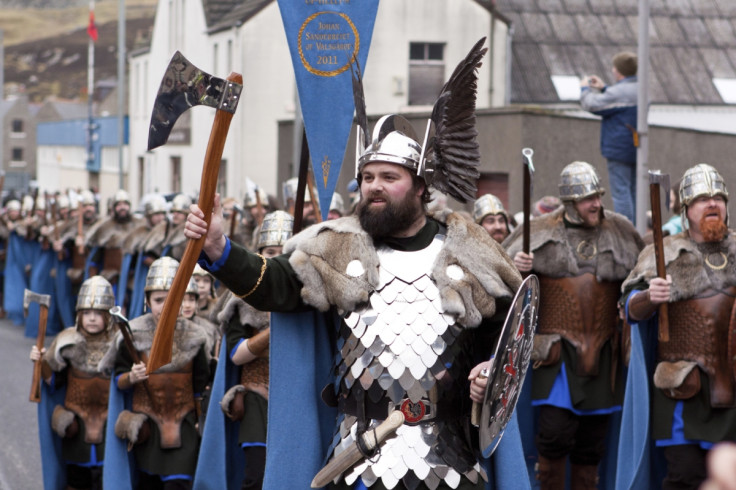Did the Normans descend from the Vikings? What genetics tell us about Viking legacy

In the French region of Normandy, scientists hope to discover if some of the locals are descendants of the Vikings, by studying the DNA of those with Scandinavian-sounding surnames.
The Viking DNA project carried out by the University of Leicester is a study into the Viking origins of Europeans, across different countries. The idea is to assess how much of the population descends from the mythical warrior culture.
In the summer 2015, a team of scientists went to Normandy to study the genetic heritage of 89 male volunteers from the Cotentin Peninsula area – which was invaded by the Vikings in the 9<sup>th and 10<sup>th century. They have now come up with provisional results, which reveal a more complex population of the region than previously thought.
Haplogroups and genetic diversity
Human Y-chromosome DNA can be divided in genealogical groups sharing a common ancestor called haplogroups. In their study, the scientists looked for these specific genetic markers on the volunteers' Y chromosome, which is transmitted from fathers to sons.
Haplogroup R1b is one of the most frequent Y chromosome haplogroups in Western Europe and it was found in 52 volunteers. Its origins are not clear, and although it is possible it was imported to Normandy by Viking populations, no direct link with Viking ancestors has so far been established.
However, the scientists also identified haplogroup I1 in about 15% of volunteers. This marker is usually found in people from "Scandinavian" descent, and could therefore be a potential sign of the Norman volunteers' Viking origins.
Additionally, haplogroup R1a – a "Norwegian" genetic marker - was only identified in two people which contradicts historical sources defining Viking invasion of Normandy as mostly originating from Norway.
"Our results suggest there is an important genetic diversity between the volunteers in our sample, with more haplogroups identified than what we would have expected. The fact that the haplogroup R1a is present only in two individuals does not match what we know from history –that Scandinavian settlements in the part of Normandy we have studied were initially Norwegian", Dr Richard Jones, from Leicester University, told IBTimes UK.
Norman history in Europe
The scientists also identified other genetic markers shared by the volunteers originating from other regions of the world, such as Sicily, Eastern Europe or even the Middle East.
This may reflect the history and conquests of the Norman population, which went through complex movements to extend its territory and influence throughout Europe, over millennia.
The exciting process of understanding and retracing the genetic history of Normans and how closely they are related to legendary Vikings is only just starting, the scientists believe.
© Copyright IBTimes 2025. All rights reserved.






















